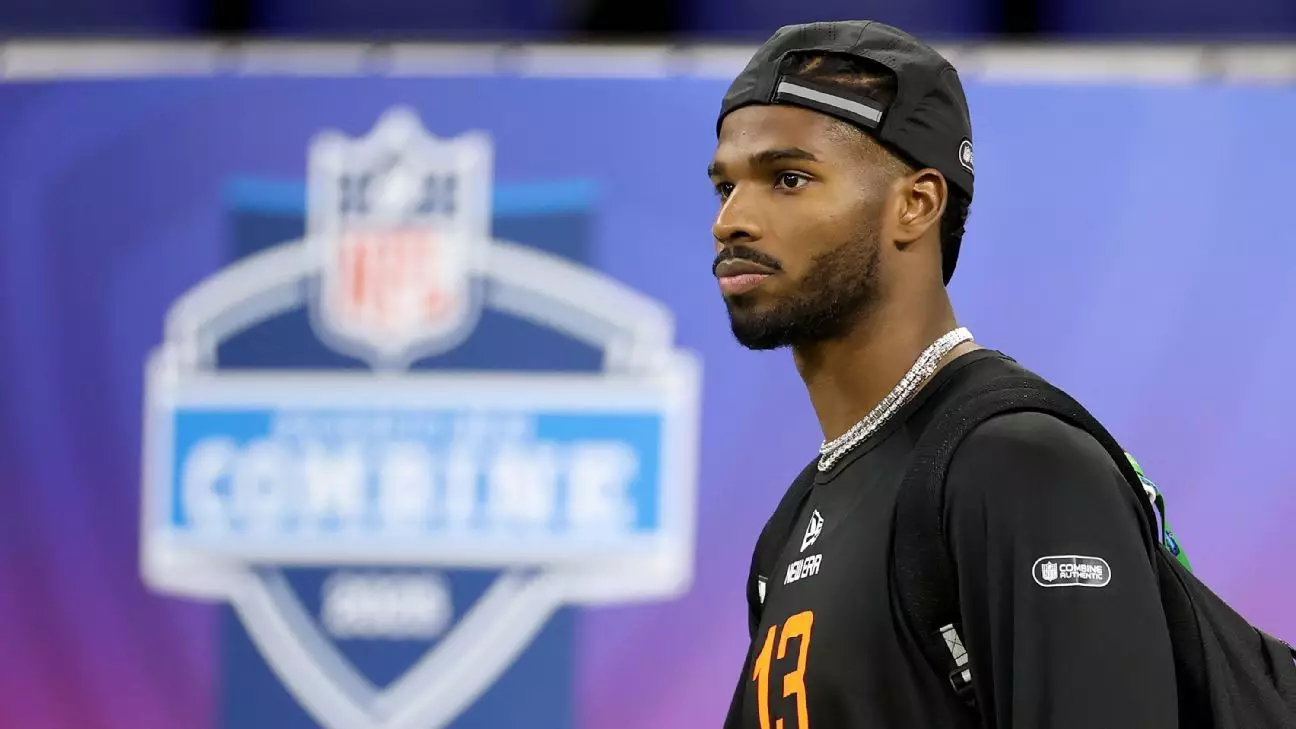The NFL Draft is a rite of passage for college athletes transitioning to professional football, a moment filled with dreams and aspirations. Against this backdrop, a recent prank call incident involving Shedeur Sanders, son of the esteemed Deion Sanders, has injected a sour note into what should have been a celebratory atmosphere. This situation not only reveals a gross lapse in judgment but also highlights deeper issues regarding respect and privacy in sports.
Twenty-one-year-old Jax Ulbrich, son of Atlanta Falcons defensive coordinator Jeff Ulbrich, found himself at the center of controversy after he allegedly prank-called Shedeur Sanders, impersonating New Orleans Saints general manager Mickey Loomis. The call, made during the high-stakes hours of the NFL Draft, can only be described as juvenile and fundamentally misguided. Sanders was left bewildered, asking his entourage, “What does that mean?” as he attempted to make sense of the absurdity thrust upon him at such a pivotal moment. The decision by Ulbrich to use his father’s open iPad to obtain Sanders’ private number raises significant concerns regarding data privacy and basic decency.
Apologies and Consequences
In the aftermath of the incident, Jax Ulbrich took to Instagram to express his mortification. His apology, characterized by an acknowledgment of the “selfish and childish” nature of his actions, begs the question: can a simple Instagram post suffice to absolve such a blatant violation of trust? In a world where public figures must tread carefully, Ulbrich’s actions seem to disregard a basic tenet of human decency, particularly given the magnitude of the occasion for Sanders.
“It was completely inexcusable, embarrassing, and shameful,” he stated, expressing regret for stealing away from Sanders’ moment. Yet, even in his contrition, the act itself cannot be undone. The erosion of respect—particularly for someone on the verge of achieving lifelong goals—cannot be glossed over with reassurance. The fact that Sanders ultimately showed remarkable grace by downplaying the impact of the prank should not lessen the seriousness of Ulbrich’s actions, nor should it absolve him of the consequences that ideally follow such impropriety.
Reflecting on the Broader Implications
This incident casts a shadow not only on those directly involved but also on the NFL and its culture. It raises timely questions about privacy and the ethical obligations of individuals within the league. Why was there little to no security around personal information? What does it say about the leagues’ image when someone’s celebratory moment can be so easily tainted by someone’s immature whim? The Atlanta Falcons have publicly stated that this behavior is not condoned, assuring fans and stakeholders of their commitment to reviewing protocols. However, organizational introspection must lead to actionable change to prevent similar incidents in the future.
Moreover, it’s important to consider whether the culture around draft seasons needs adjustment. The phenomenon of prank calls has slowly become a footnote in this intense process, often accepted as a norm—a tradition even. Are we simply desensitized to the potential harm these jokes can inflict on young athletes?
A Call for Maturity and Respect
The NFL draft is not merely a sporting event; it represents the culmination of years of struggle, sacrifice, and dedication for the athletes involved. For these young men, moments like being drafted can be life-altering. Therefore, it is incumbent upon all stakeholders—family, fans, and teams—to create an environment of respect and dignity. Jax Ulbrich’s actions inadvertently shed light on the lack of accountability and maturity that can sometimes permeate the league’s culture.
We must spotlight these events, not to vilify individuals, but to push for a more principled framework that governs behavior in such high-stakes circumstances. In an arena where the stakes are already sky-high, let us collectively strive to ensure that respect is paramount, that personal boundaries are honored, and that the triumphs of young athletes are celebrated free from the shadows of childish pranks. It’s time for the football community to elevate the discourse and hold each other to a higher standard—one devoid of unnecessary distractions and disrespect.

